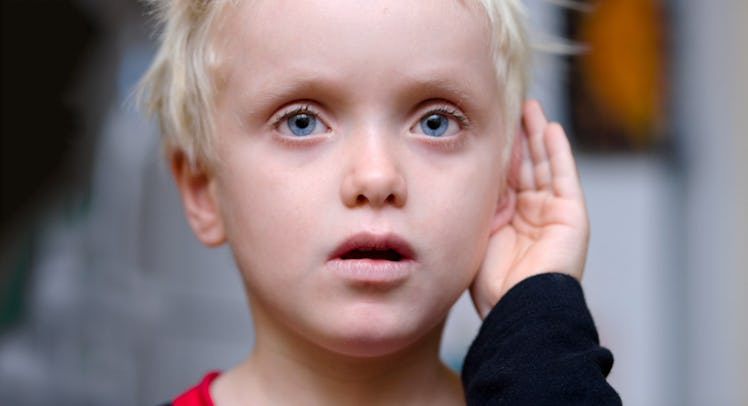Music Therapy May Not Help Treat Autism, Study Says
Researchers are changing their tune.

For autistic children, music therapy may not be an effective course of treatment, new research suggests. The findings, published this week in JAMA, suggest that improvisational music therapy (spontaneously creating music with song and instruments) made no discernible difference in the severity of autism symptoms.
“We wanted to know if there is reliable evidence that music therapy produces lasting effects on core symptoms of autism,” coauthor on the study Christian Gold of the Grieg Academy Music Therapy Research Centre in Bergen, Norway told Fatherly. “The present study was much larger and more rigorously designed than previous studies.”
As Gold notes, researchers have attempted to make a case for the benefits of music therapy for autistic children for some time. However, most involved painfully small sample sizes. A review of 10 studies in 2014, published in Cochrane Database of Systematic Reviews, made the most compelling case for music therapy as an effective treatment, but the research was still based off of multiple small analyses, so Gold and his colleagues could not be sure that it worked.
So Gold and colleagues divided a randomized sample of 364 children with ASD into two cohorts: 182 received routine counseling in combination with improvisational music therapy, and 182 were provided with just routine counseling. After five months, both groups improved marginally, but not in a significantly different fashion. “Although children tended to improve over time, this improvement was small, and it was similar whether or not children received music therapy,” Gold says.
There are some limitations to consider. John McCarthy of Ohio University, who was not involved in the research, notes that this study involved 30 different music therapists involved in nine separate countries. “It is a lot of potential variation and there could have been more information about treatment fidelity,” McCarthy told Fatherly. And while he acknowledges that the study is a randomized control trial (“the gold standard for experimental research,” he says) that does not mean the findings are robust enough to suggest autistic kids won’t benefit from music therapy.
“Not seeing changes in a profile over 5 months of improvisational music therapy is different than saying music therapy doesn’t work for children with autism spectrum disorders,” he says.
Gold agrees that the takeaway is not that parents should disregard music therapy altogether. Rather, the results suggest that parents may want to manage expectations about relatively unexplored treatments like musical therapy. “Be skeptical of therapies that promise wonder cures,” Gold says. “Instead, try to find the right social context where autistic symptoms are accepted and understood, instead of trying to remove those symptoms.”
This article was originally published on